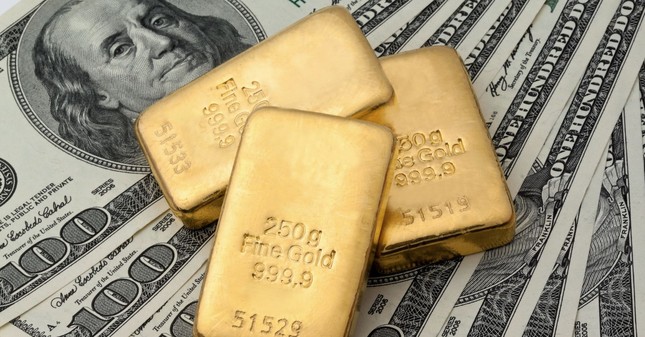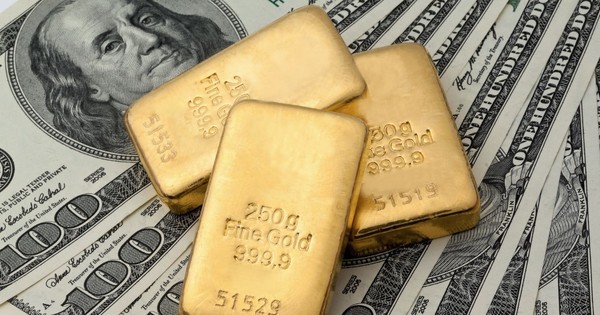International Banks Ditching the US Dollar to Buy Gold

Investment Gold Guide for Asset Managers is a book written by Kamol Alimukhamedov, Deputy CEO of the Central Bank of Uzbekistan and a member of the country’s Investment Committee.
The book provides an overview of gold as an investment, including market structure, strategic asset information, as well as trading, custody, logistics, and accounting activities.
The book offers clear analysis of the trend among central banks in reducing their holdings of US Treasury bonds to increase their gold reserves.
“In the modern era, gold continues to play a crucial role in the global financial system, as a hedge against inflation, a safe haven asset, and a reserve asset for central banks,” writes Alimukhamedov in the introduction.
The book argues that the role of gold as a reserve asset for central banks significantly increases demand for the precious metal. The author lists economic and geopolitical challenges that help solidify gold’s position as a safe haven asset amid the ongoing trend of de-dollarization.
“The market disruptions caused by the global financial crisis of 2008, the US-China trade war, Brexit, and the COVID-19 pandemic, prolonged negative real interest rates, and geopolitical unrest due to financial sanctions imposed on Russia to freeze its foreign exchange reserves have further reinforced the strategic importance of gold as a means to counter financial instability,” the book states.
Alimukhamedov also points out the results of the World Gold Council (WGC) survey in 2022, in which asset managers cited “historical position” and “performance during crises” as the strongest reasons for increasing their gold holdings.
Starting in 2022, central banks around the world suddenly became more interested in increasing their gold reserves.
He noted that since 2022, central banks have become more optimistic about gold as a reserve asset. 61% of respondents stated that they expect global gold reserves to increase in the next 12 months.
“The stance of central banks towards gold has changed in the post-global financial crisis period, and they have become net buyers since then, regardless of the increasing price of gold.
Another significant reason is the freezing of Russian accounts and the seizure of assets by the United States and its allies following Moscow’s military campaign in Ukraine.
Alimukhamedov also highlights the correlation between the price of gold and geopolitical risks.
Another study showed that reserve managers view gold as a means of protecting against economic and geopolitical risks, so they tend to increase their gold holdings during periods of instability or high geopolitical risks. In addition, reserve managers in emerging markets tend to increase their gold holdings to guard against financial sanctions.
Alimukhamedov explains that recent sanctions against Russia have prompted central banks of many other countries to shift their reserves from foreign exchange to gold. The reason is that gold is a tangible asset that can be stored domestically, while foreign exchange reserves can be frozen if subjected to sanctions.
According to Kitco

